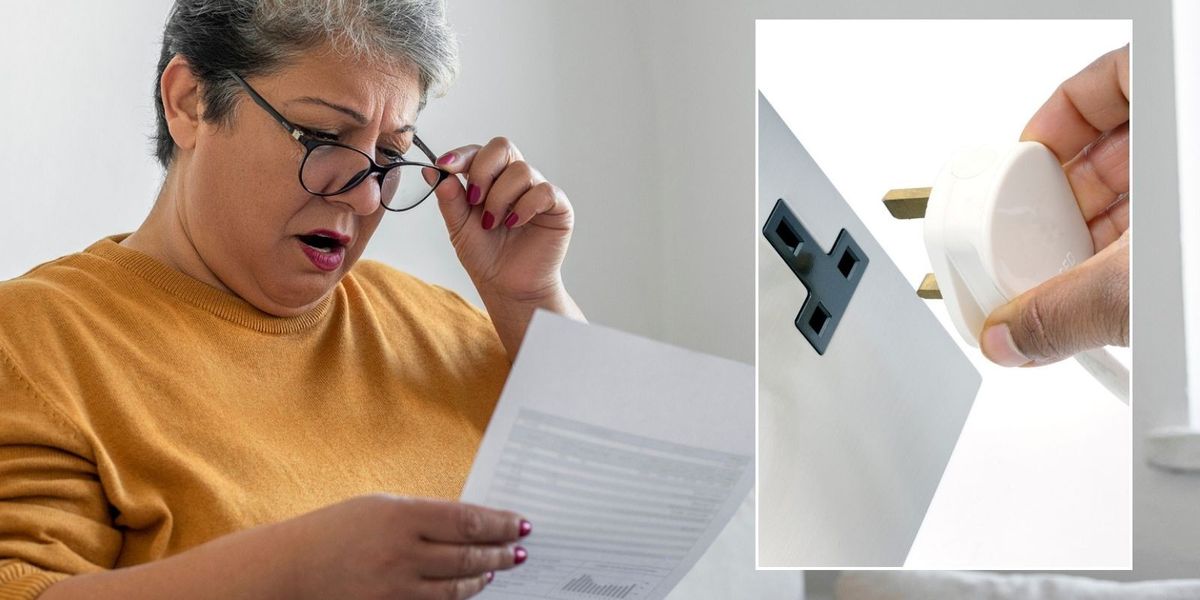UK households are being warned about five common household appliances that could be adding £407 to their annual energy bills, as families prepare for another price hike in January.
The alert comes as Ofgem’s energy price cap is set to rise to £1,738 per year in January, with analysts at Cornwall Insight suggesting it could reach £1,782 annually. This cap from the regulator limits the maximum amount energy firms can charge per unit of energy and standing charge for those on a variable tariff.
Industry experts have cautioned that new energy network charges and potential reforms could add further costs to the cap. Households are being encouraged to seek fixed deals with suppliers, which are often cheaper than the anticipated January price cap.
However, significant savings can be achieved by managing the use of everyday devices that consume the most power, according to electrical expert Chris Madikian from The Local Electrician.
Washer dryers have emerged as the biggest culprit for high energy consumption, using around 425 kWh annually and accounting for 12 per cent of typical household bills.
Do you have a money story you’d like to share? Get in touch by emailing money@gbnews.uk.
Experts are urging Britons to unplug devices to slash energy bills
GETTY
This single appliance adds approximately £104.13 to yearly energy costs due to its high water and electricity usage for heating. Experts advise using cold water washes, running full loads, and air-drying clothes where possible to reduce consumption.
Tumble dryers are the second most costly appliance, using 388 kWh yearly and contributing 11 per cent to household energy bills at £95.06 annually. Households can make significant savings by switching to heated clothes airers, dehumidifiers, or traditional air-drying methods.
These two appliances alone account for nearly £200 of the total £407 additional costs identified by experts. Chest freezers rank as the third highest energy consumer in UK homes, using an average of 304 kWh yearly.
According to Madikian, these appliances add £74.48 to annual bills, with experts recommending regular defrosting and maintaining a temperature of -18C for optimal efficiency.
Door seal checks are also advised to keep chest freezers running efficiently. These appliances add £74.48 to annual bills, with experts recommending regular defrosting and maintaining a temperature of -18C for optimal efficiency.
Fridge freezers follow closely behind as the fourth biggest energy user, consuming 302 kWh per year. These common kitchen appliances account for approximately eight per cent of household energy bills, costing £73.99 annually.
To reduce fridge freezer costs, households are advised to keep the temperature at 4C. Minimising door opening times can also help maintain efficiency and keep energy costs down.
The combined cost of these two cooling appliances adds £148.47 to yearly household bills. Madikian urged families to take action to ensure their energy bills are as low as possible.
He explained: “As energy costs continue to rise, being aware of the most energy-intensive appliances in our homes-and knowing how to use them efficiently-can lead to substantial savings.”
“By making small adjustments like washing clothes in cold water or adjusting fridge temperatures, homeowners can not only lower their bills but also reduce their environmental impact. It’s all about making smarter choices with the devices we rely on every day.”
LATEST DEVELOPMENTS:
Energy expert Gordon Wallis from Your NRG previously issued a warning to the British public about so-called “vampire devices” which could significantly hike energy costs over the festive period.
He explained: “Christmas often means more time at home with family, watching movies, playing games, or enjoying new gadgets, But many devices use energy even in standby mode, which can quietly add to your bill.
“Devices like TVs, game consoles, and phone chargers continue to draw power when not in use. Simply switching them off at the plug can help you save a noticeable amount over the holidays.”
“Switch off lights when you leave a room, and close doors to unused spaces to retain heat in the rooms you’re using. These small changes can make a big difference.”

